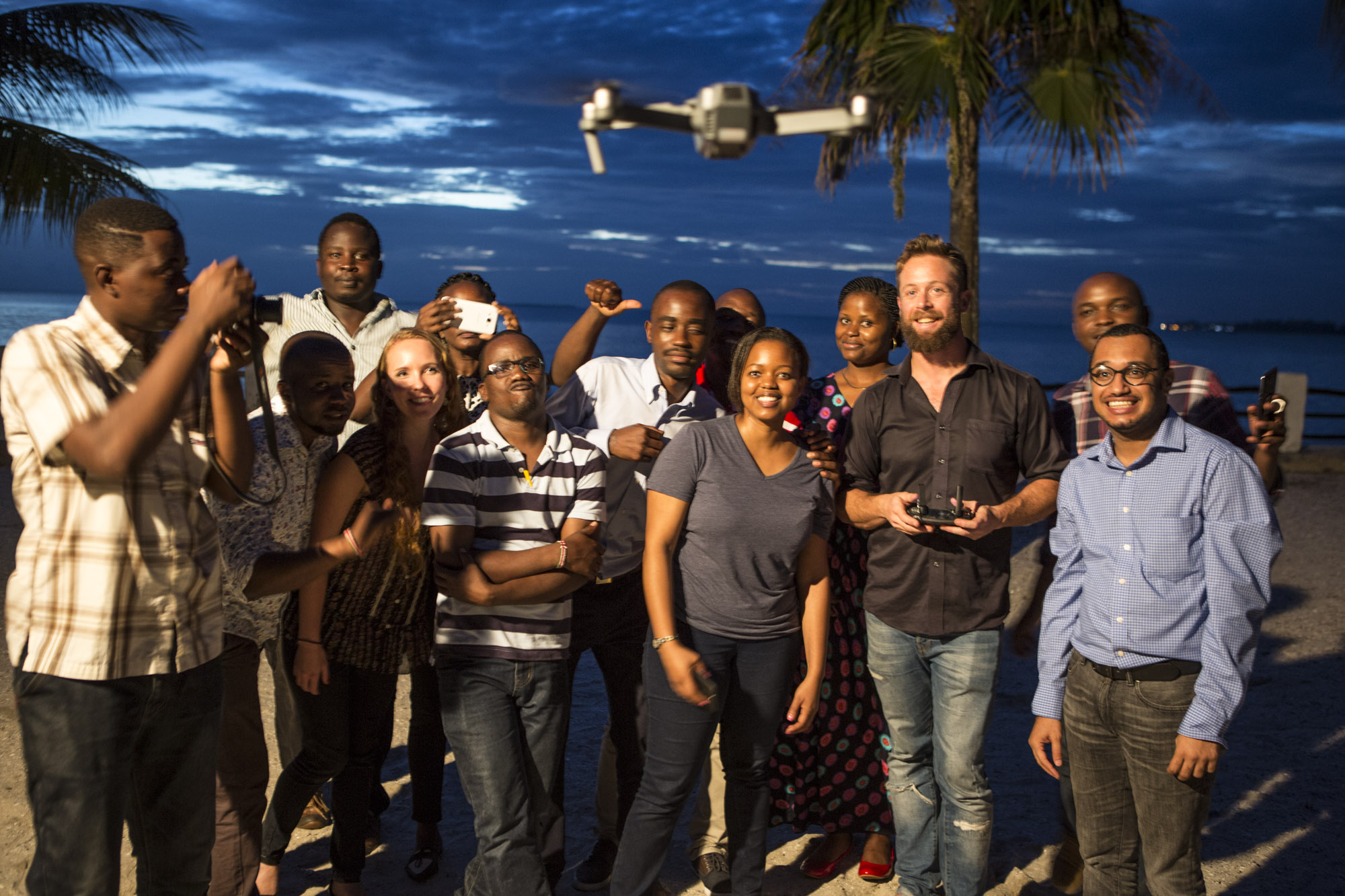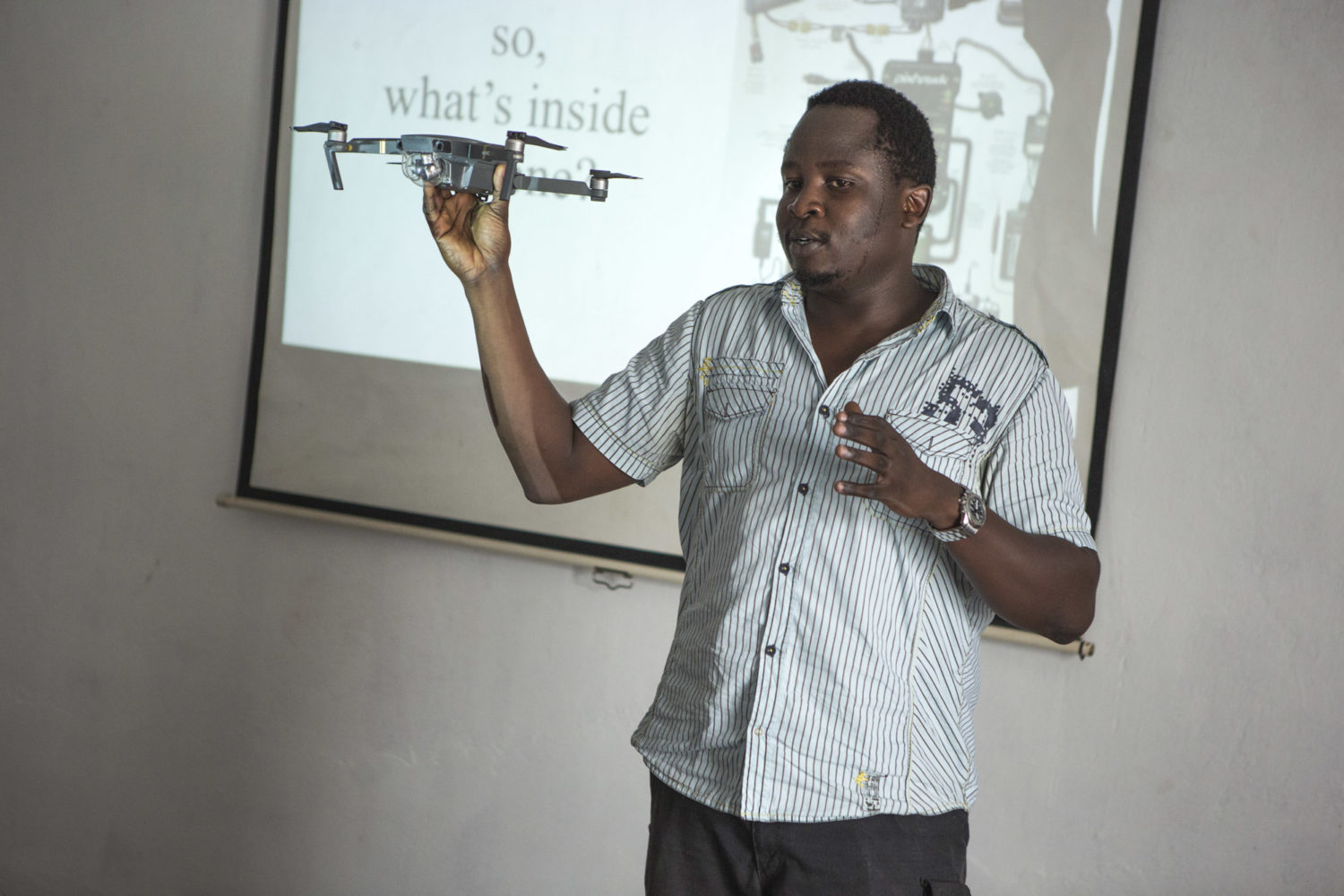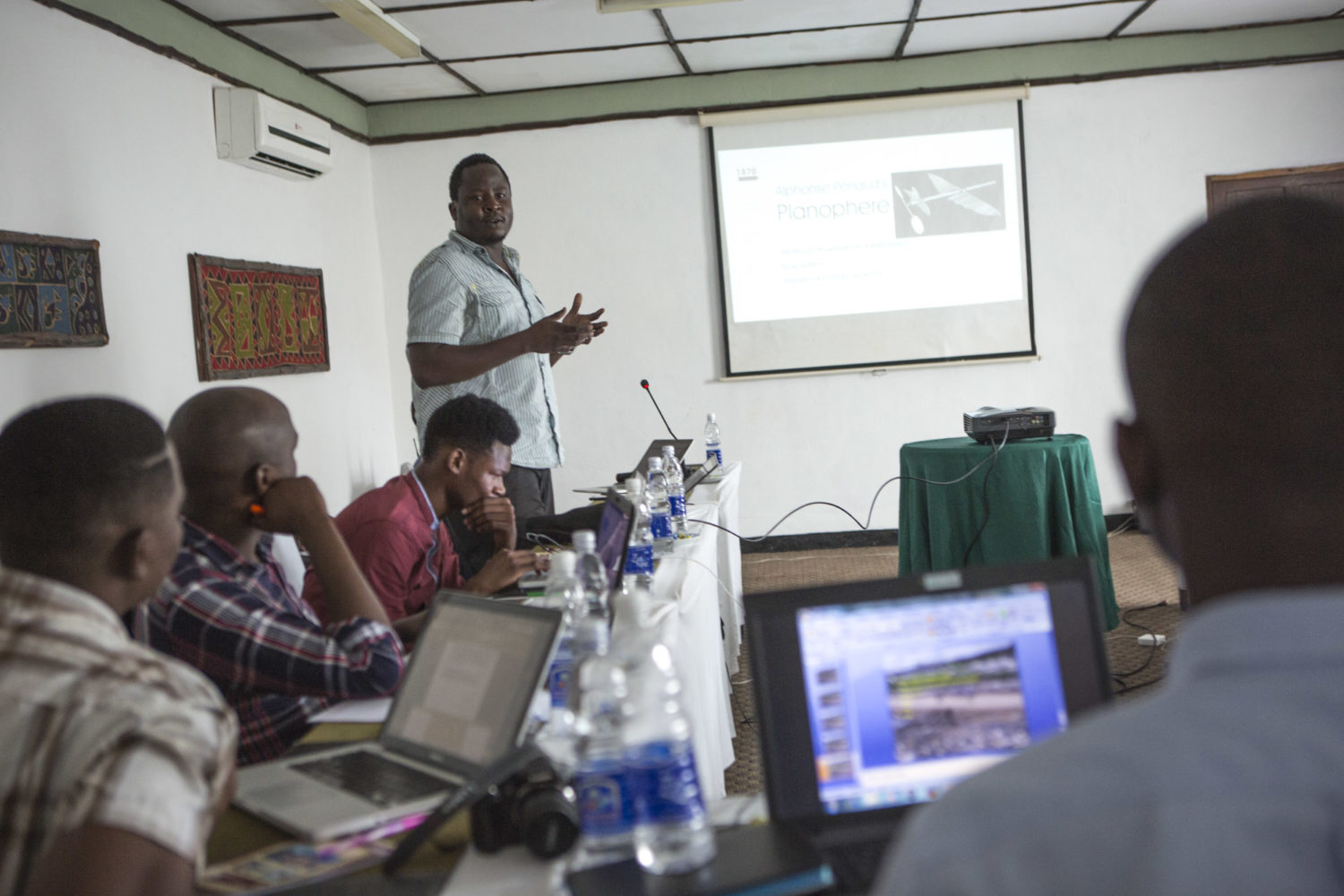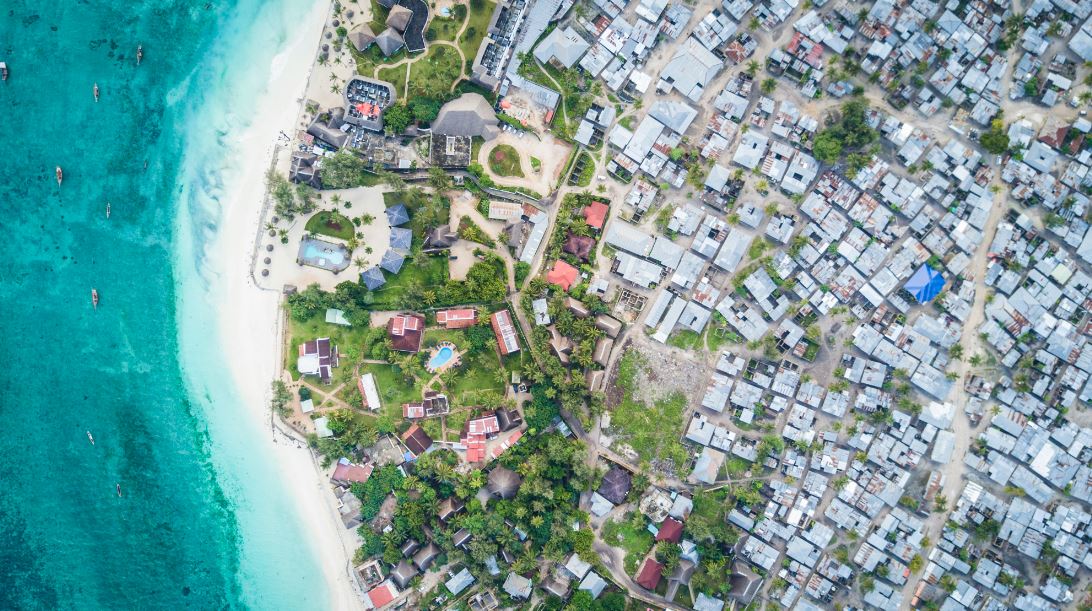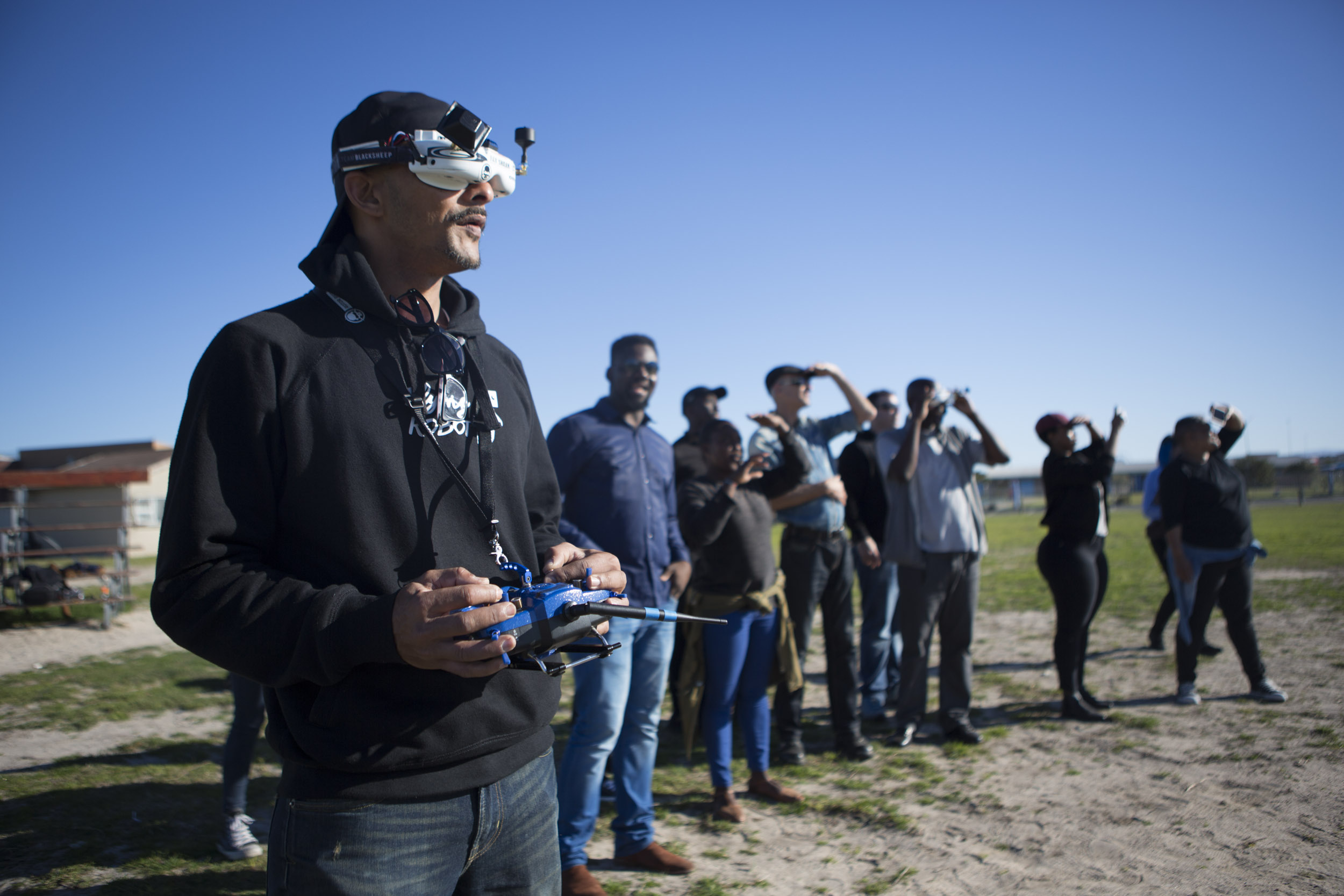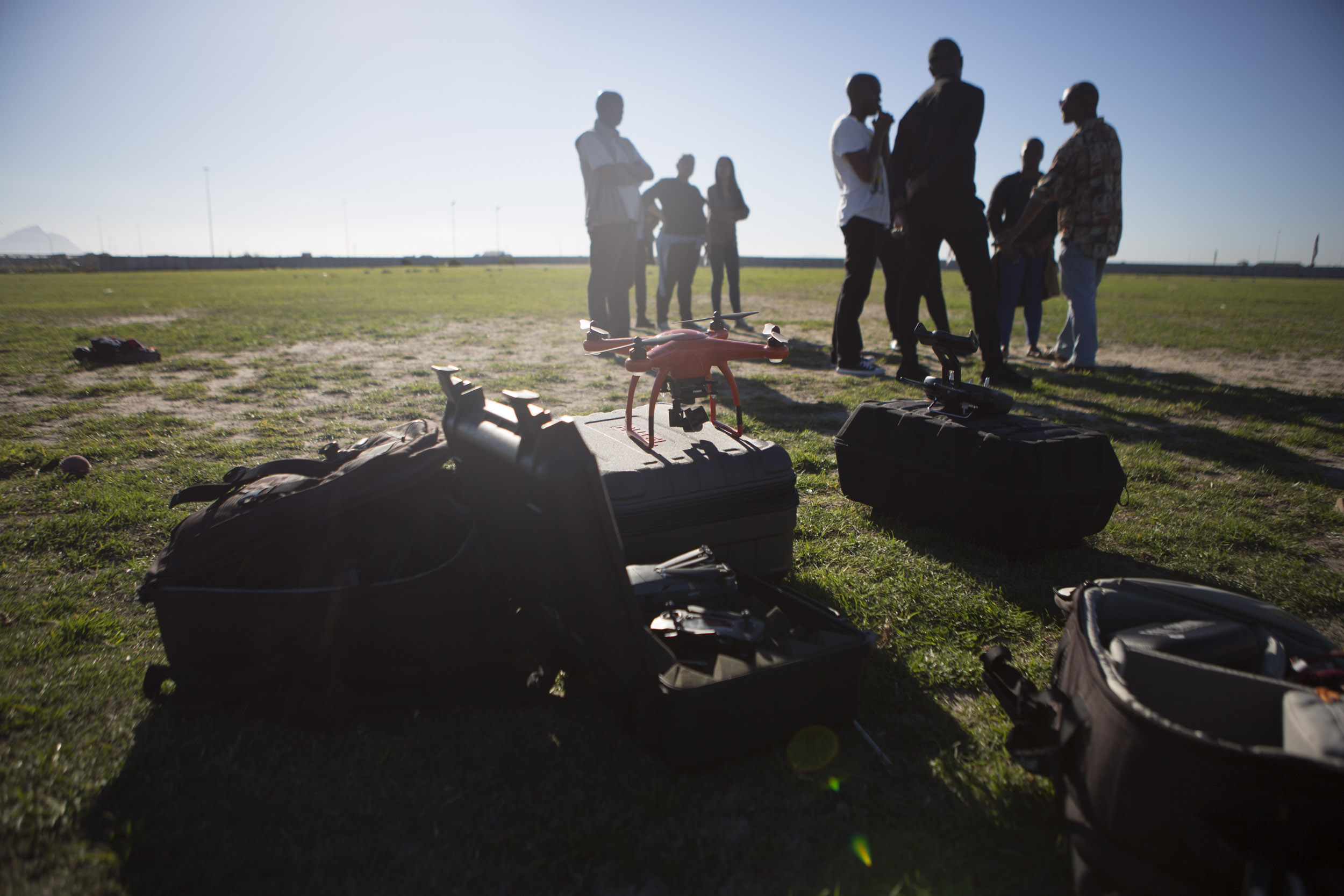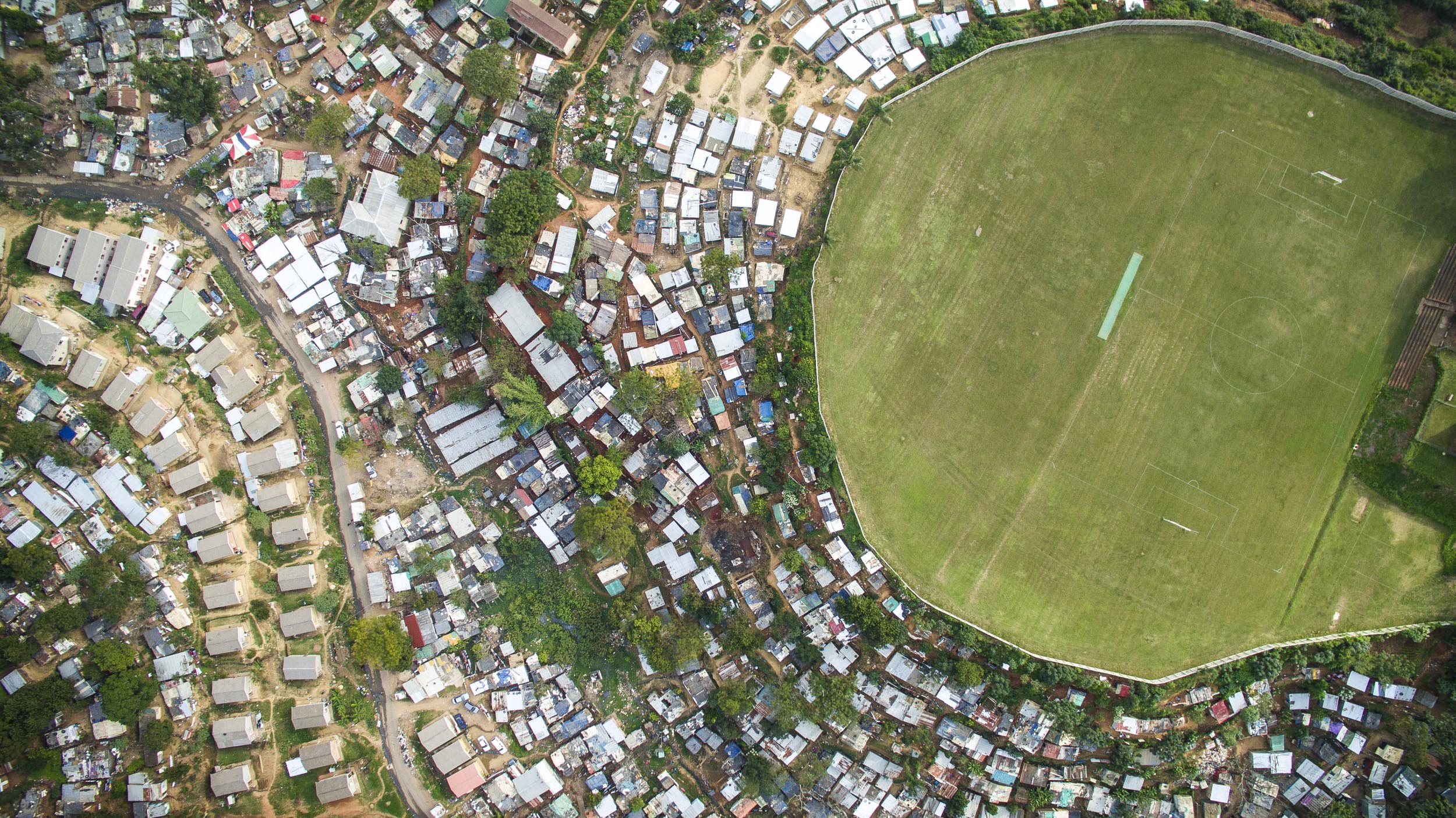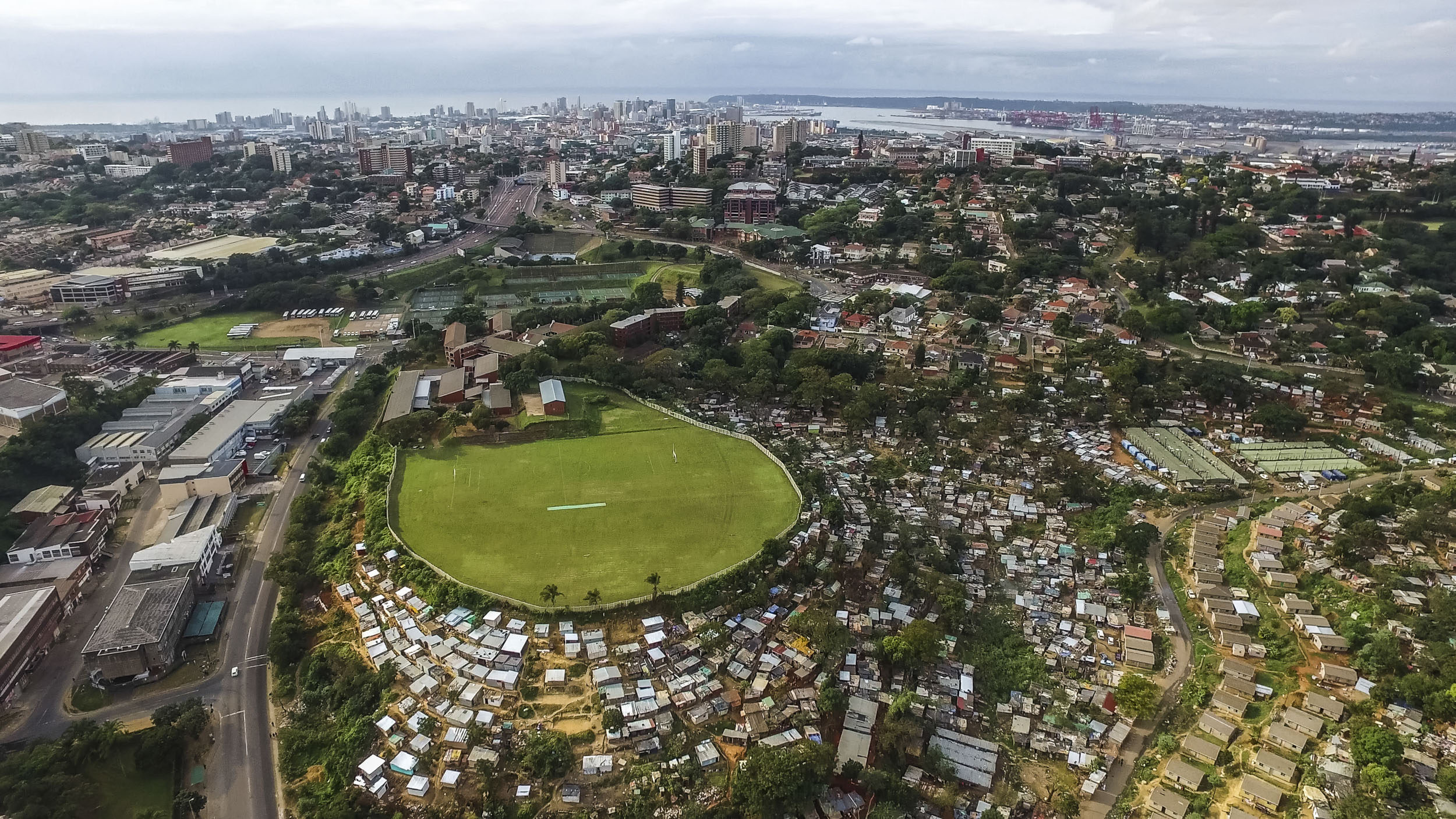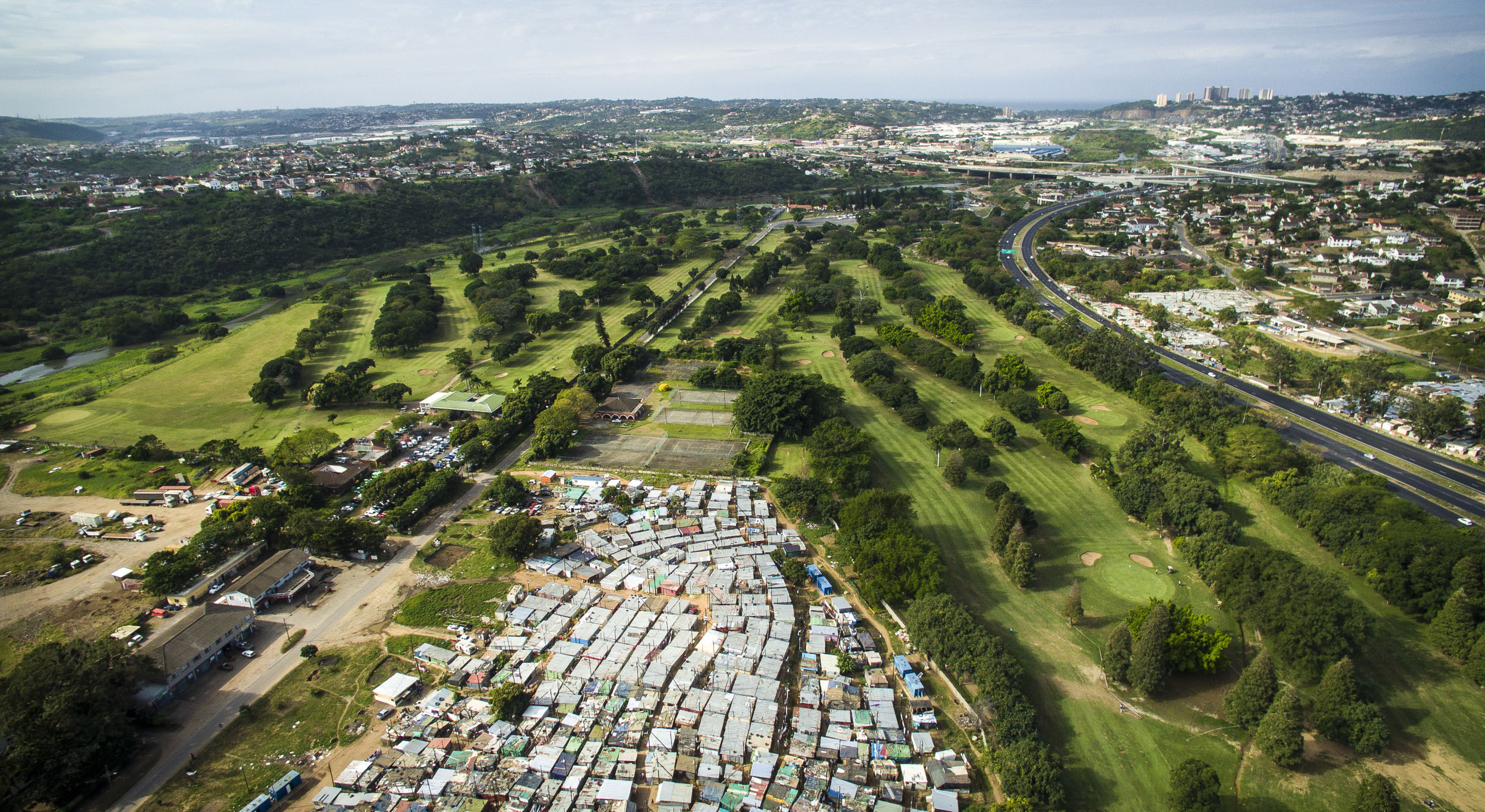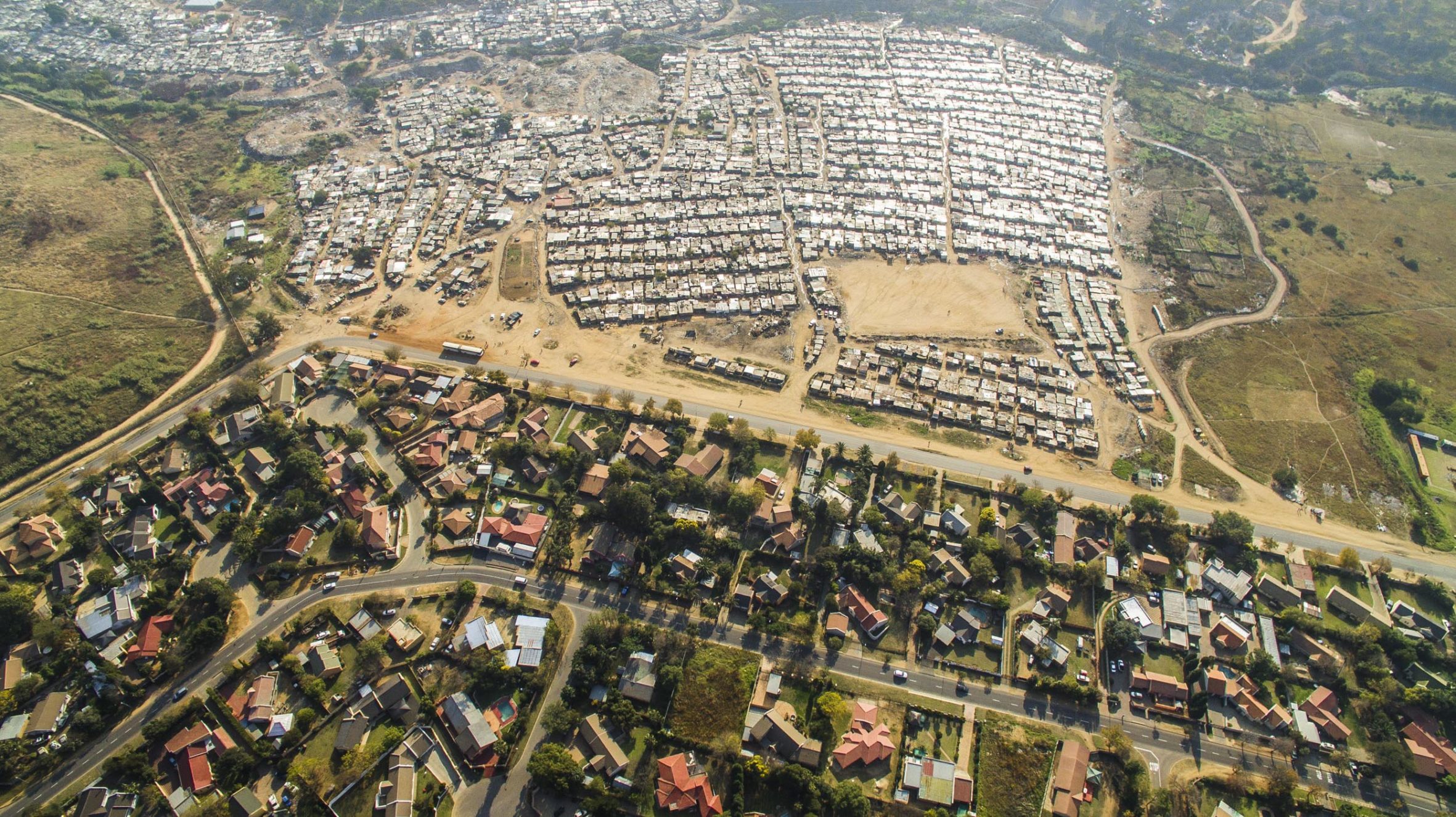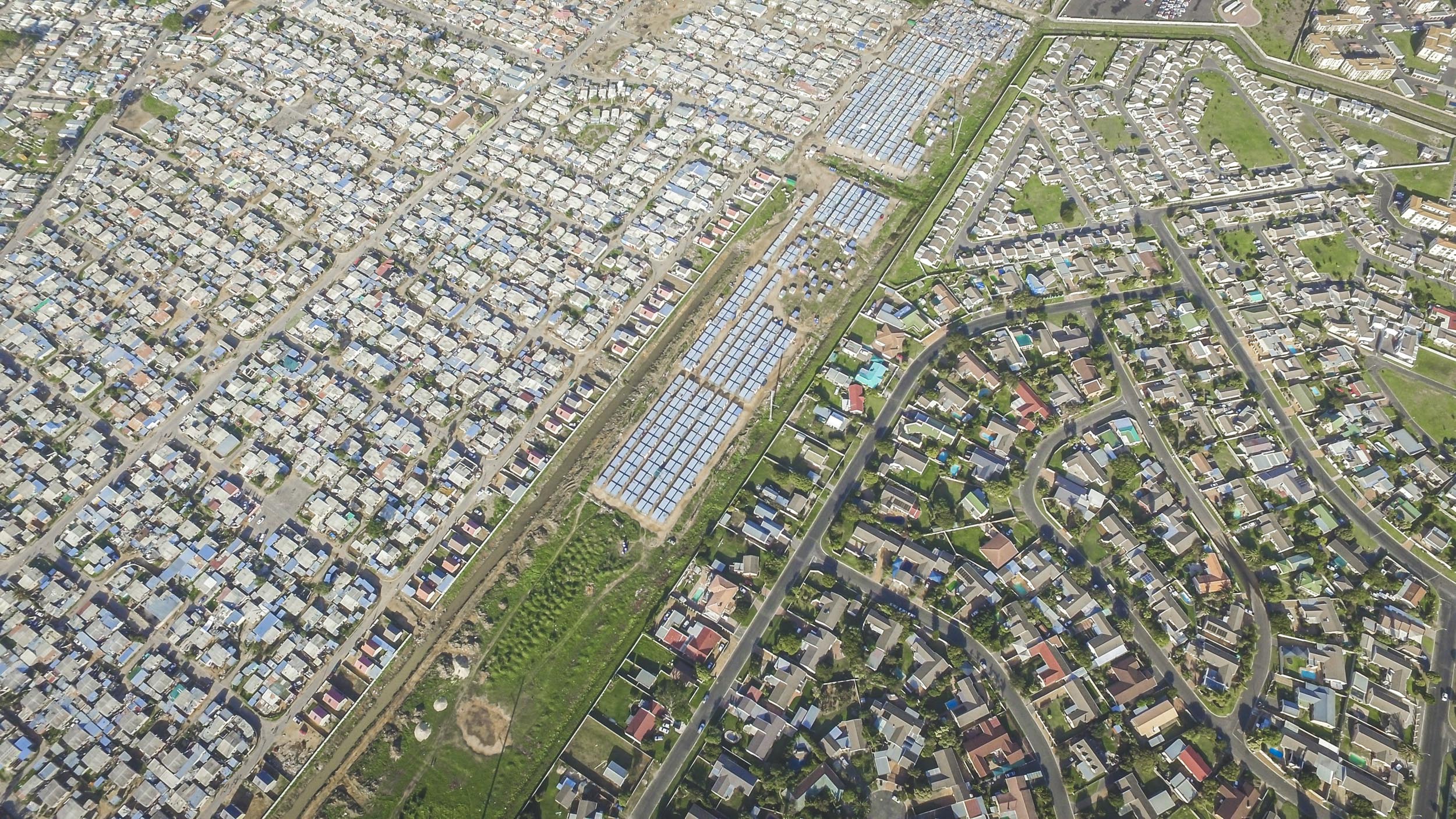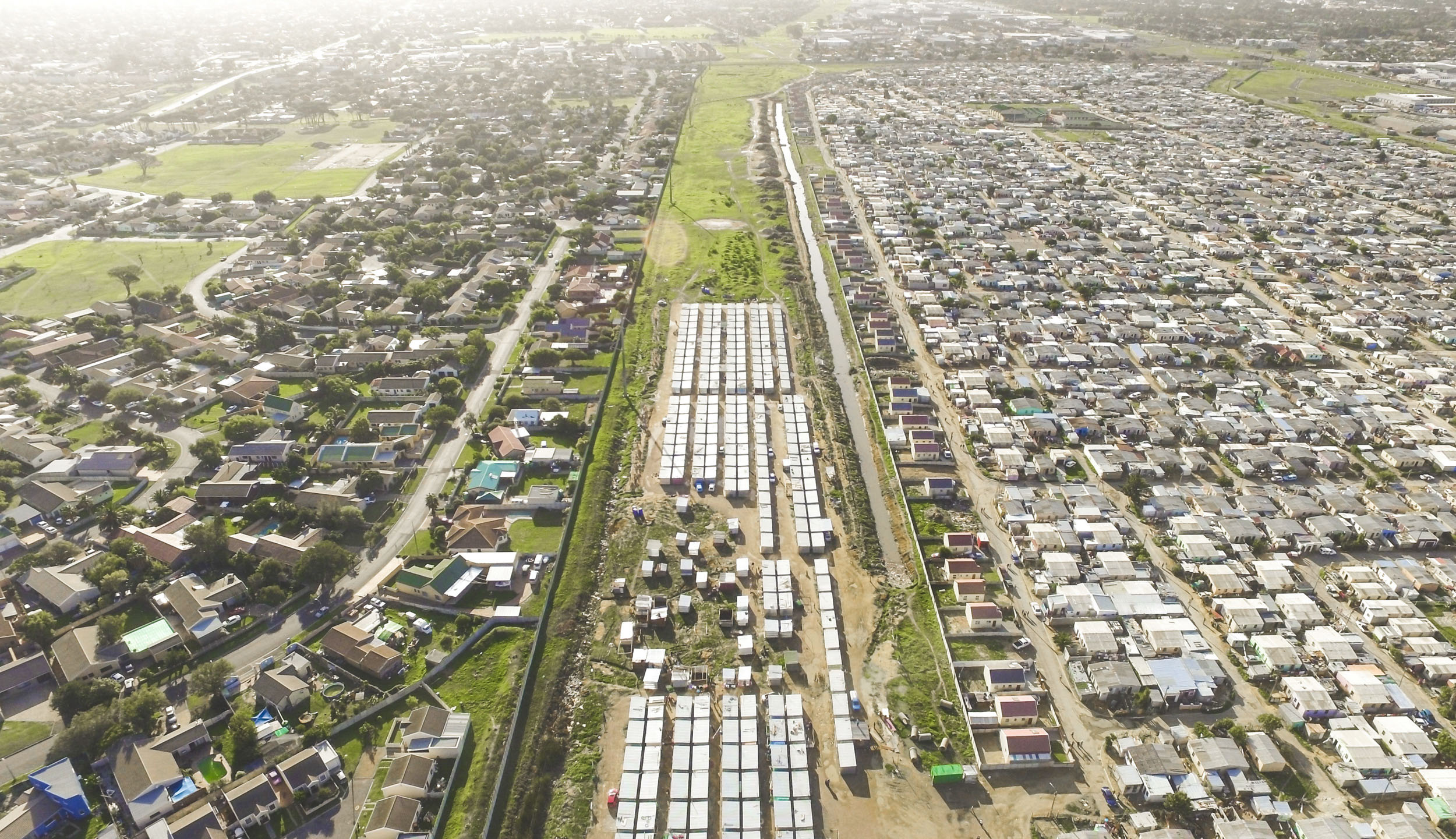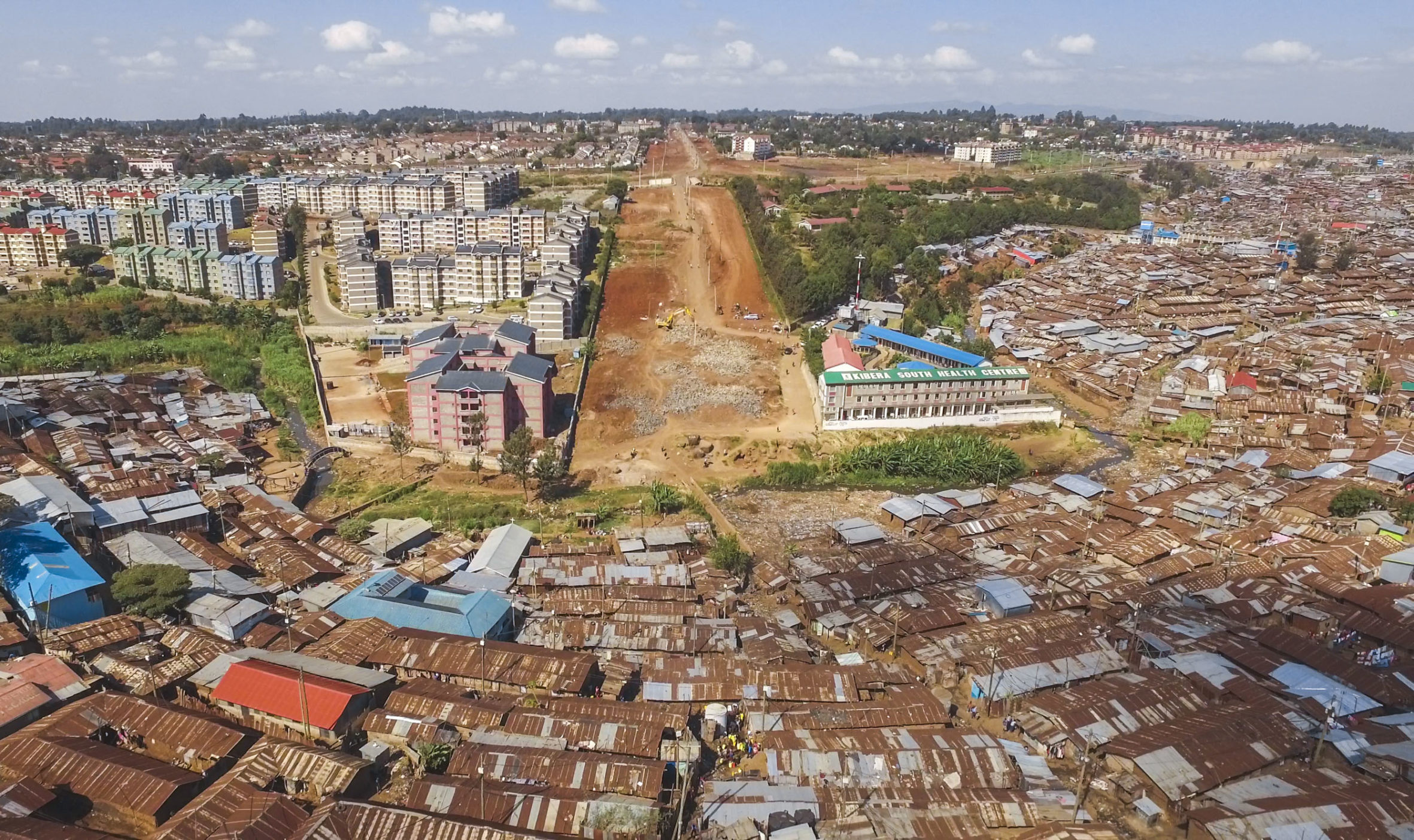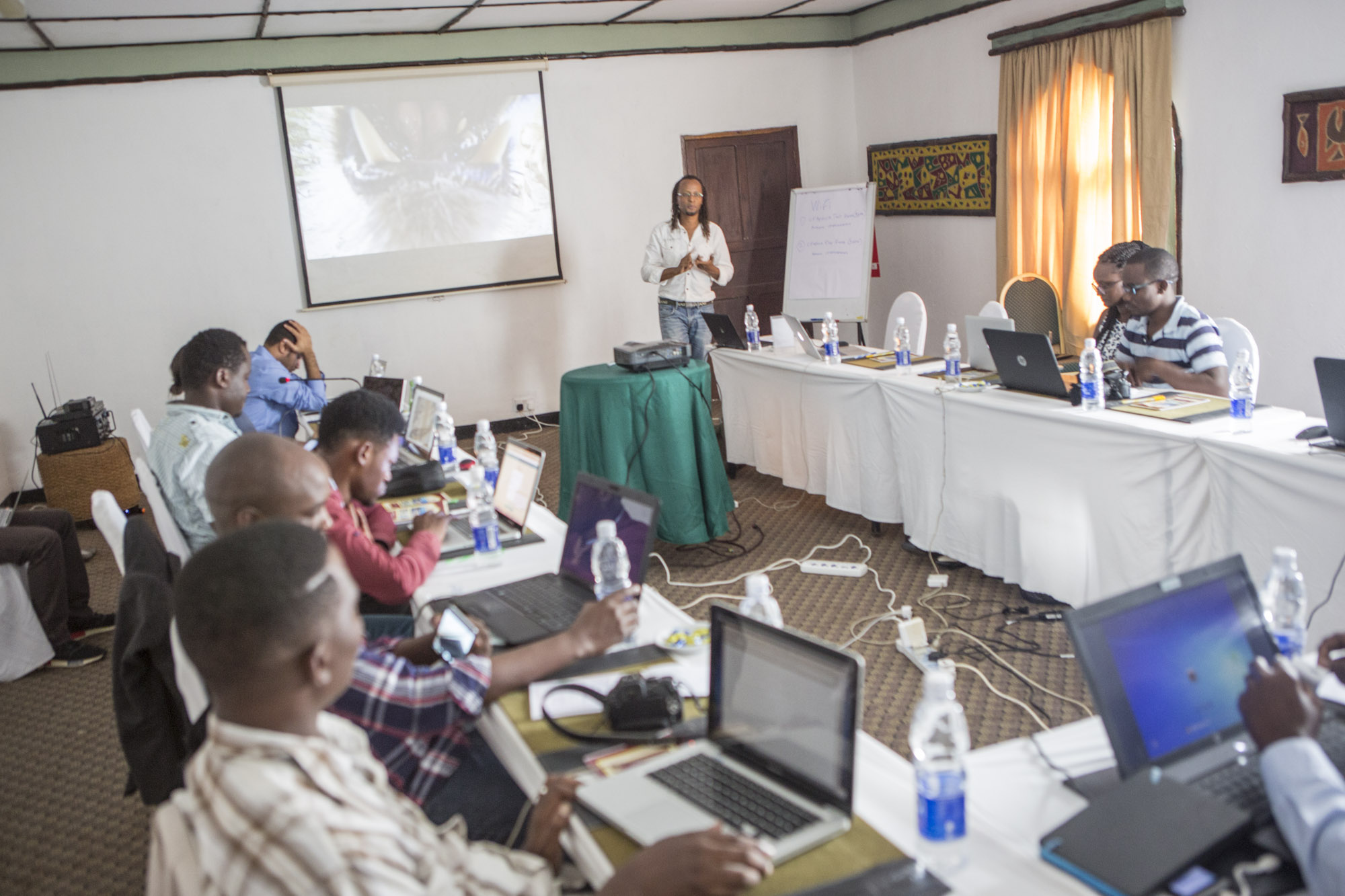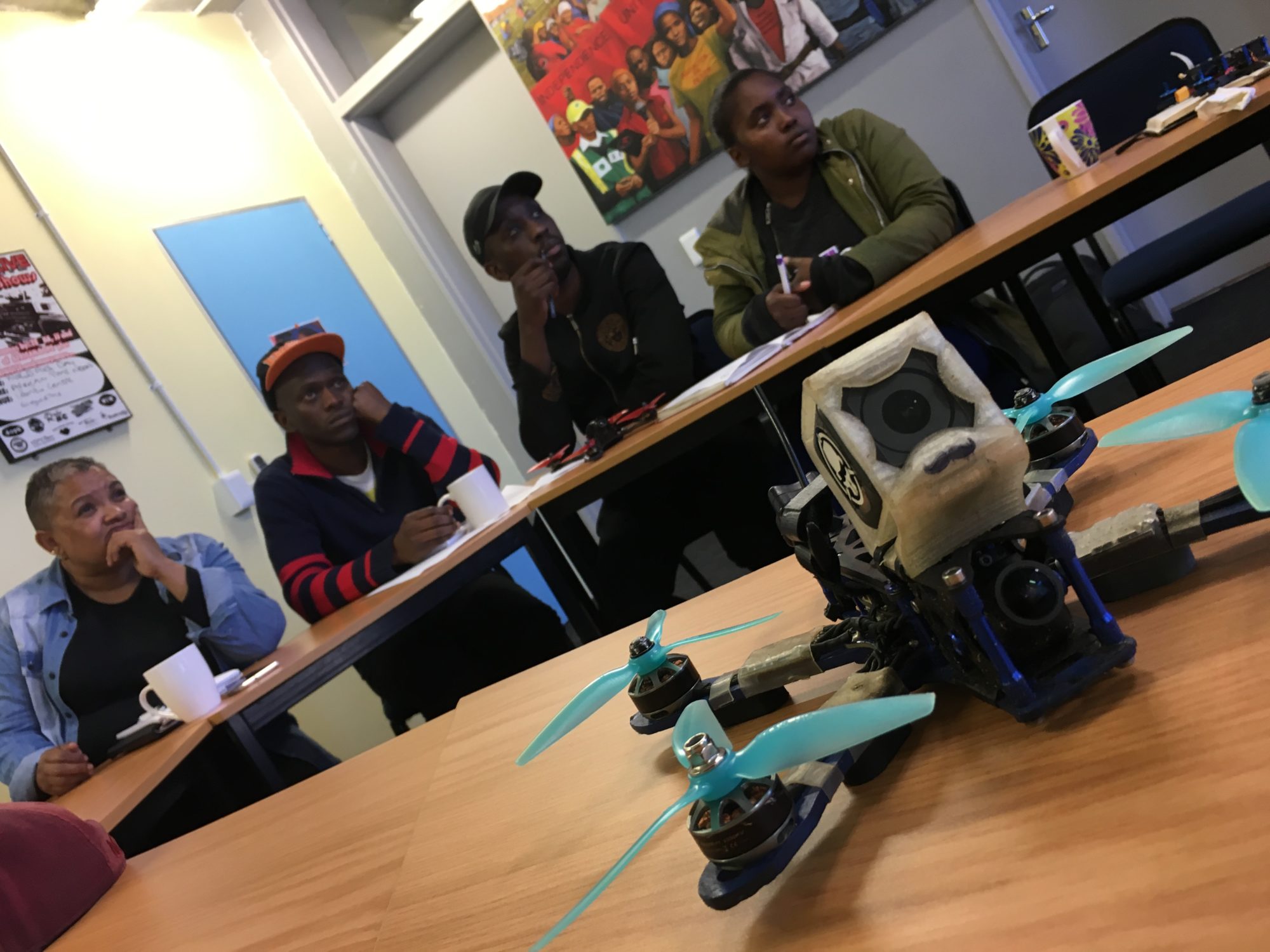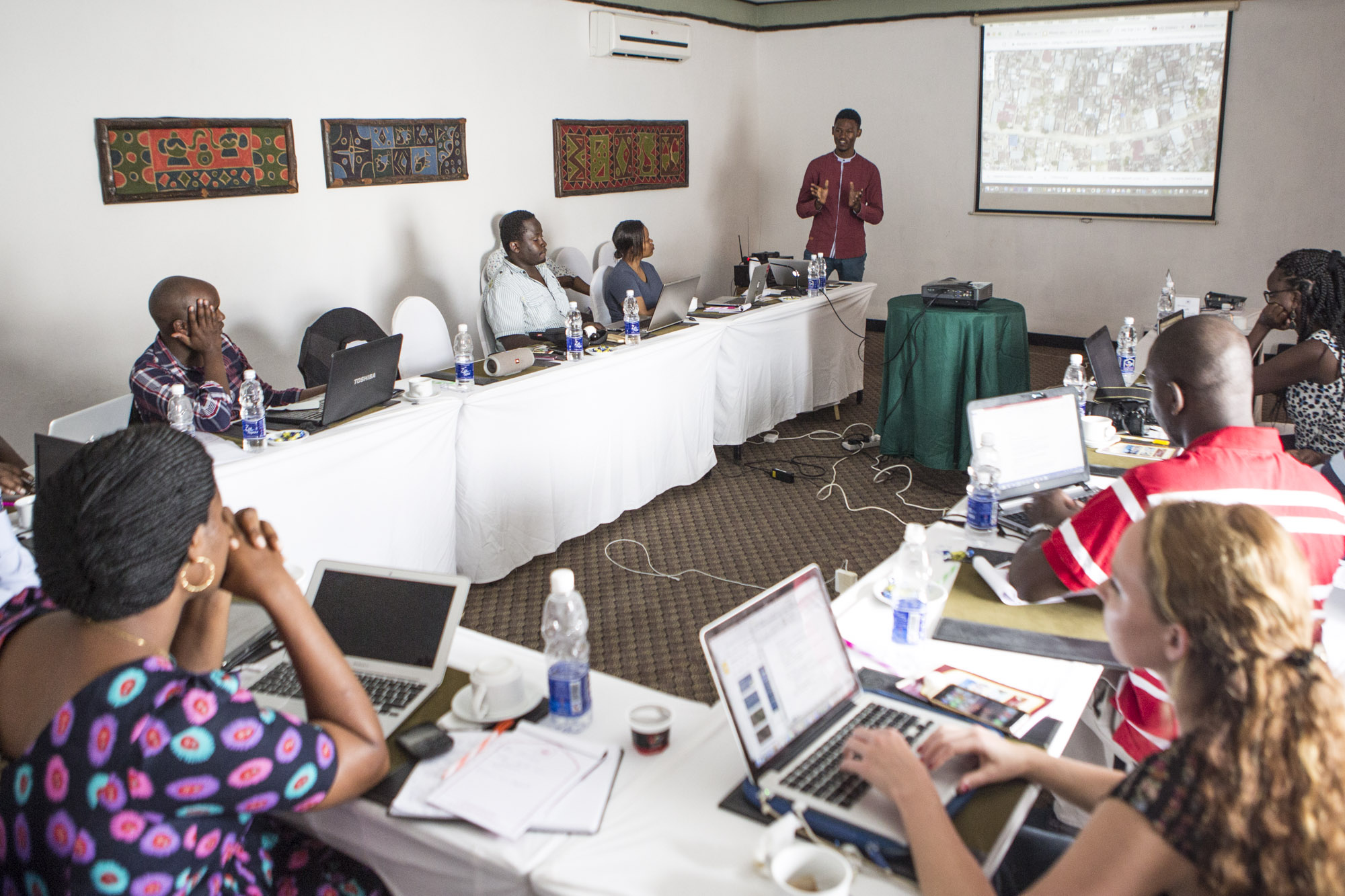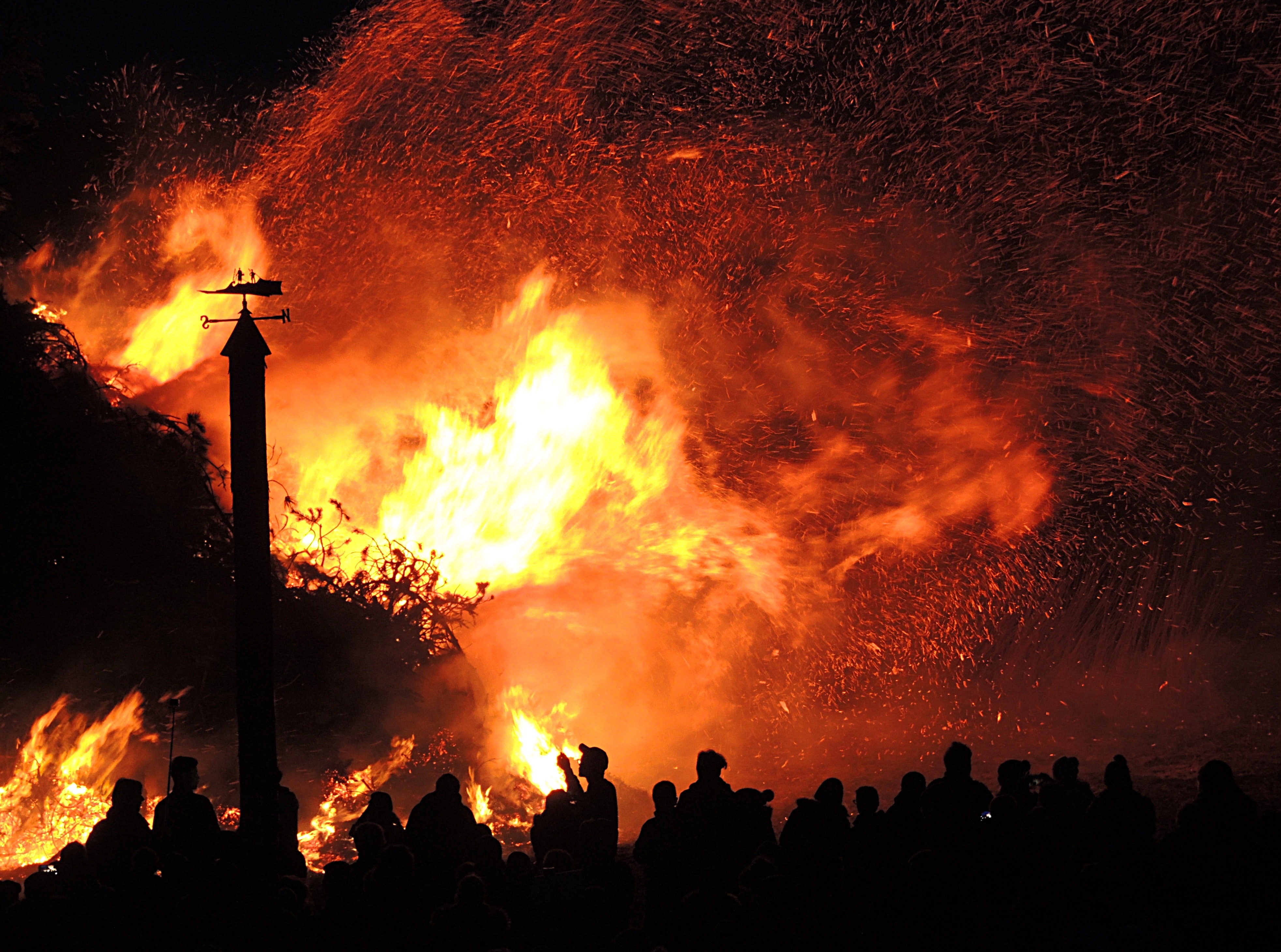Africa is on the rise. Extreme growth and a youthful, vibrant set of economies makes the continent one of the most exciting, if not the most exciting, places in the world today from the perspective of growth. africanDRONE was founded in 2017 to be an association which will help provide structure to that growth, and help steer the nascent drone industry into a powerful force for good.
Drones are a powerful democratic technology. Being able to know one’s community, visualizing it from above, creating maps, and harnessing the data, will be transformative in how Africans interact with their governments and their land rights.
Drones are a disruptive technology, which can leapfrog poor infrastructure, add value to almost very business, and employ thousands of Africans in a new technological revolution for the 21t century. We believe that drones should be used for good, which is why we actively champion and incubate drone users who want to use drones for positive, community-building practices, and support educational initiatives to allow communities to choose for themselves how best to use the technology.
africanDRONE does this as a decentralized non-profit organization, with hubs in Nairobi, Dar es Salaam, and Cape Town. We have a network of drone pilots, business owners, policy makers, journalists and tech enthusiasts across 22 countries in Africa.
We are proudly incubated by journalism/tech NGO Code For Africa, and we take a three-pronged approach to our organization:
1. Community Building: We host drone and story camps, gatherings of journalists, students, business owners, and policy makers who are looking to learn more about how to use drones for good.
We vary these camps geographically and invite a wide range of speakers and attendees which best fit our approach of communicating to a diverse audience. We offer grants to promising projects, to journalists interested in using drones for journalism, to students looking to gain more understanding of drone operations, and scholarships to promising drone businesses looking to attend.
We encourage networking and working across national boundaries, as the legislative eco-system of drone air law in Africa is fragmented and sometimes opaque. We were founded to bring together a community, and we use our power to convene as a force for greater awareness and understanding.
2. Seed Funding: We invest small amounts of money and match resources to help organizations experiment with using drones for good. We have a wide network of contacts and production assistance through our main partner, Code For Africa, as well as a variety of other organizations on the continent who help us accelerate projects with web development, editing, 3D modeling and surveying, writing, and buildouts of low-cost airframes. Our seed funding grants and impact accelerators encourage African businesses to grow, develop, and thrive. We call this our africanDRONE ecosystem.
3. Impact Accelerator: We have several core projects creating impact, which we support and maintain through sustained funding. We support Unequal Scenes, an award-winning drone journalism project which highlights inequality from the air; Sea Sensors, which uses underwater drones and sensors to measure blast fishing in Tanzania, and our East African Hub, which supports a variety of projects, including the Lake Victoria Challenge, a large drone delivery competition hosted by the World Bank, and a variety of drone mapping projects including new tech tools to dramatically lower the cost to create accurate and detailed maps
In addition to the above tasks, africanDRONE sees ourselves as a thought leader in the regulatory space, and as an advocate for the small business owner and individual drone pilot.
RELATED ARTICLES:
![]() “Unequal Scenes, Exploring Income Inequality Via Drone
“Unequal Scenes, Exploring Income Inequality Via Drone
by Alessandro du Bessé
 The Rise of the Drones: An Interview with Measure
The Rise of the Drones: An Interview with Measure
by Christopher Wu
 “The Whites Have Brought Planes” Perception of Drones in Malawi
“The Whites Have Brought Planes” Perception of Drones in Malawi
by Alexander Fraser
Currently, drone use is hamstrung by uneven enforcement of opaque drone regulations. By some estimates, drone technology in South Africa alone could employ up to 30,000 new people and contribute over R2billion to the South African economy, in a fully streamlined regulatory environment.
Unfortunately, restrictive and expensive compliance mechanisms mean that the industry is currently stifled from achieving its true potential. We believe that this is problematic for three reasons.
1. By restricting commercial drone operations to only those who are wealthy or otherwise able to navigate challenging and opaque bureaucracies, we are missing a big opportunity to transform colonial economies.
Currently the unofficial unemployment rate in South Africa is over 50%, and other African countries fare even worse. Why are we not doing everything we can to empower African entrepreneurs who want to use a simple, cheap, and safe tool to create an entire new market segment of aerial photo, video, and mapping?
New technology means that drones can be restricted from problematic areas, such as airports and key installations, and sensors and better batteries mean modern drones almost never go astray or fall out of the sky. Security concerns are overblown and unreasonable. Outside of Syria and Iraq, drones have not been used for attacks against civilians or governments, have never brought down a manned aircraft (the number of collisions is extremely low, and even some high-profile “drone strikes” have been misreported and later discovered to be false), and rarely result in injuries to people on the ground.
Even the widely-reported “drone scare” over Gatwick airport in the UK turned out to be misleading at best, a cover-up of some other problem at worst. The simple truth is that drones can be trusted in the average civilian’s hands, and by restricting that ability, governments are restricting a key democratic technology that could bring about powerful change through unrestricted access to information – a worrying concept.
2. In most African countries aside from South Africa, drone legislation is fungible, opaque, and open to corruption and outright bribery. What is the process for legally obtaining a commercial drone permit in your African country of choice? The reality is, very few people will know the correct answer, and even more will take the chance to fly illegally. This results in a culture of corruption, corner-cutting, and uneven enforcement that should be avoided at all costs. Investors are scared away by countries with unclear legislation: Why would one start a business worth millions of dollars, naira, or shillings, only to be told that drone operations are illegal the next day?
Economies and employment would grow with a stable, clear, and fair commercial drone policy across all of Africa. Restricting operations to one or two preferred operators, usually those with close ties to government, creates an atmosphere of nepotism and an unhealthy business environment which reinforces privilege and increases inequality.
3. If we could harness drones to their full advantages, we would be using them for the purposes of mapping, land reform, delivery, and other ways of “drones for good”. Drones have the ability to create low-cost, accurate maps, cheaply, and Africa is one of the least-mapped continents on earth. Africa has poor infrastructure, and it is estimated that it would cost over $1 Trillion to upgrade the continent to match European standards.
Drones could achieve this transformation for a fraction of this amount, while employing local staff. Inspection of power lines, tunnels, roads, and mines cost hundreds of lives every year, are expensive, and time-consuming.
Drones could monitor thousands of kilometers of any network, autonomously, day and night, for a fraction of the costs. All of this could be a game-changer, but we need to harmonize drone regulations, come up with a solution to Universal Traffic Management (how drones interact with manned aircraft), standardize drone licensing and education, and encourage drone pilots and businesses with tax and other incentives.
By being based in Africa and advocating for a fully localized drone association, we hope to encourage and represent African drone pilots in a way that few other organizations have. We encourage and support experimenting with local airframe buildouts, 3D printing, local repairs, and indigenous training programs to keep intellectual capital within Africa. We work closely with international partners to make this happen, and see our role as an advocate and as a representative of African interests.
To thrive we need a broad engagement with the wider drone community, which is why we’re encouraging people to get in touch with us or sign up on our website, africandrone.org. We are always on the lookout for new ideas, new partnerships, and new streams of funding, and we hope that as we succeed, so will the drone ecosystem in Africa.
EDITOR’S NOTE: The opinions expressed here by Impakter.com columnists are their own, not those of Impakter.com


